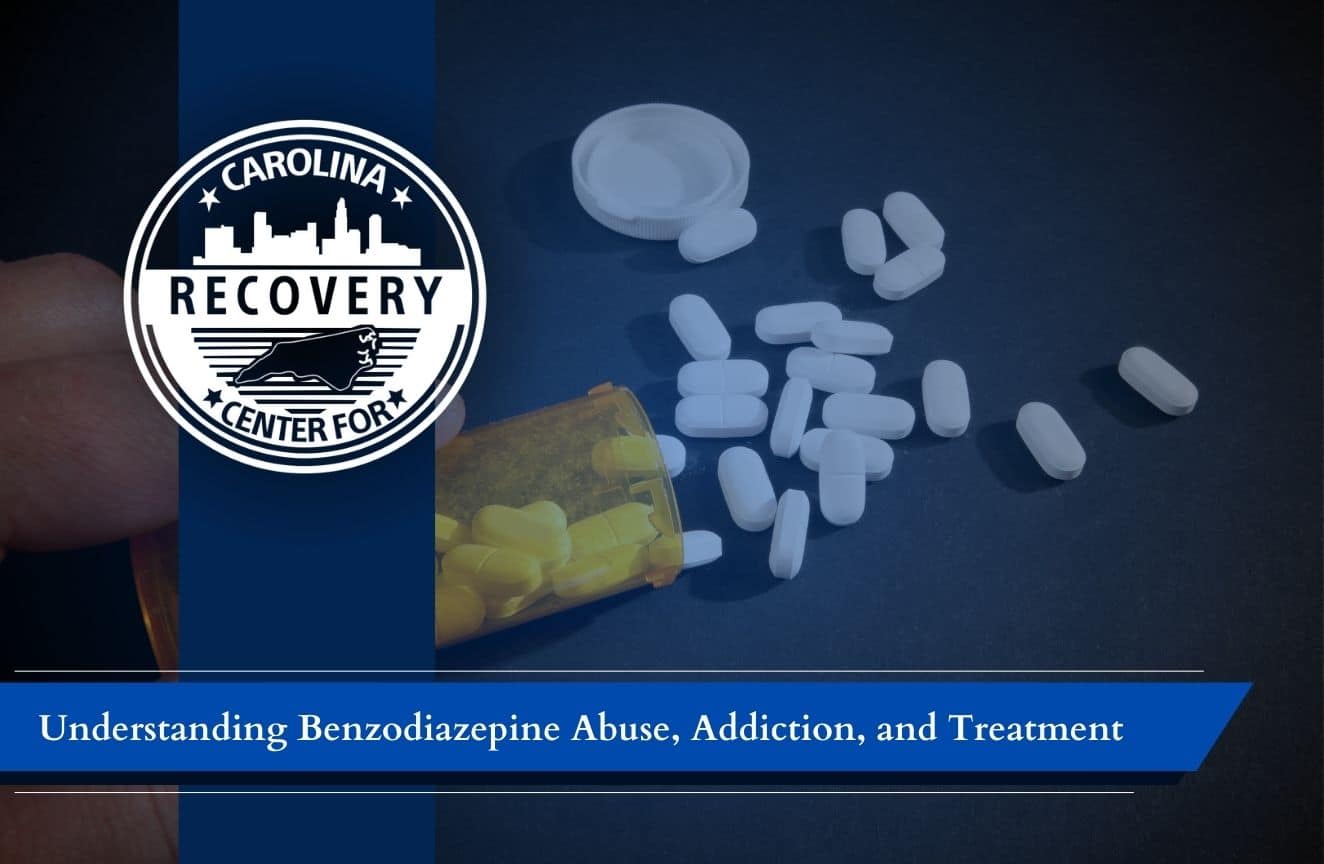


Benzodiazepines are a class of drugs with sedative effects. These drugs slow down activity in the central nervous system (CNS). Doctors prescribe benzodiazepines to help people manage anxiety disorders, panic, insomnia, and other mental health conditions.
People who misuse benzodiazepines may become physically dependent on them. Even people taking prescription benzos for a long period of time may develop symptoms of addiction.
Benzodiazepine addiction can cause long-term damage to a person’s mental and physical health. It’s essential to be aware of the signs of addiction and seek treatment as soon as you recognize a problem.
In this article, we will explore how benzodiazepine addiction develops. We will detail the signs and symptoms of benzodiazepine abuse and how to find treatment to overcome these conditions.
Reach out to the Carolina Center for Recovery team to learn about our treatment programs. You may also schedule an intake assessment.
Benzodiazepines are sedative prescription drugs. Some of the most common brand name benzos include:
Many people in the United States take benzodiazepine drugs to manage a mental health or medical condition, including:
Benzodiazepines reduce activity in the central nervous system (CNS). People who take them may feel calm, relaxed, and less anxious.
Benzodiazepines have the potential to be addictive. People who use benzos may develop a physical addiction to them. Doctors usually only prescribe benzodiazepines for a short period of time to limit the risk of addiction.
All medications have side effects. One of the side effects of benzodiazepines is dependence or addiction. Doctors typically prescribe benzos for short periods to keep people from developing tolerance or dependence.
Other side effects of benzodiazepines include:
People who misuse benzodiazepines have a higher risk of unwanted side effects or complications.
It is possible to overdose on benzodiazepines. A benzo overdose is more likely to happen when people mix benzos and other substances, including alcohol.
Benzodiazepine medications can help people manage the uncomfortable symptoms of anxiety, panic, and insomnia. These drugs can also keep people safe and stable during alcohol withdrawal.
However, people who take benzodiazepines may develop tolerance, dependence, and addiction to these drugs.
People typically develop benzodiazepine addiction after abusing these drugs for some amount of time. Benzo misuse includes:
The Drug Enforcement Administration (DEA) classifies benzodiazepines as a Schedule IV drug. This means that a drug has medical use but carries the risk of addiction.
Long-term benzodiazepine abuse can lead to tolerance. Tolerance occurs when a person’s body adjusts to the presence of a substance. People with benzo tolerance need to take a high dose of the medication to get the effects they want. This can put them at increased risk for overdose and other life-threatening complications.
Benzo addiction can develop quickly–even during short-term use. It’s important to recognize the signs of prescription drug abuse. Then, you must seek treatment for benzodiazepine addiction as soon as possible.
Benzodiazepine abuse and addiction can change how a person looks, thinks, and behaves. Here are some of the signs of benzodiazepine addiction to watch for:
It is possible to recover from benzodiazepine addiction. Medically-supported detox and comprehensive treatment can give you a new start toward a healthier, sober future.
When a person with benzodiazepine addiction stops taking them, their body goes into withdrawal. Benzodiazepine withdrawal can be very uncomfortable. Symptoms of withdrawal may include:
People who try to manage withdrawal from benzodiazepines on their own may be unsuccessful. Many relapse before detoxification is complete. Treatment and support are essential to ensure you have a safe, complete detoxification.
During a medically-supported detox program, people receive medications, supervision, emotional support, and other therapies. This treatment can allow them to finish detox and begin a comprehensive treatment program.
During treatment, people follow a treatment plan. Treatment plans include medical and mental health care, counseling, group support, education, and more. They learn how to avoid relapse and live a healthier, sober lifestyle.
Contact the Carolina Center for Recovery team now to learn about our effective benzodiazepine rehab programs in North Carolina.